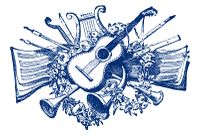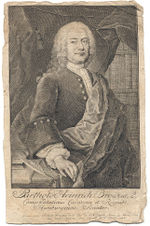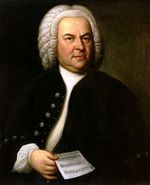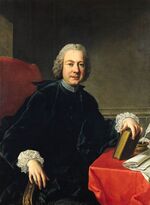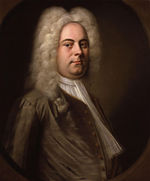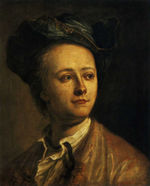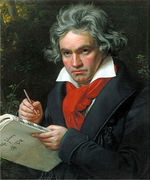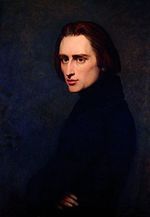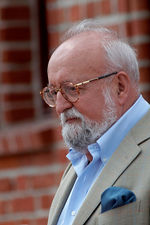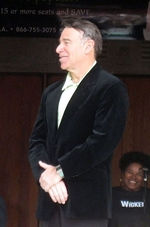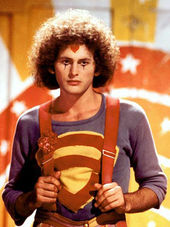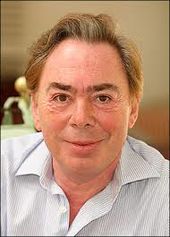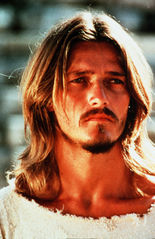Category:Jesus of Nazareth--music (subject)
List of works of music on Jesus of Nazareth
< Jesus of Nazareth in : Art -- Cinema -- Literature -- Music -- Theatre >
- Christus am Ölberge (Christ on the Mount of Olives / 1803 Beethoven / Huber), oratorio
- Jesus Christ Superstar (1970 Webber / Rice), opera
- Godspell (1971 Schwartz / Tebelak), musical
Jesus in Music: An Overview
©2015 Gabriele Boccaccini, University of Michigan
Web Page especially created for the panel presentation on Haendel's Messiah, performed at the University Musical Society (Ann Arbor, MI; December 5, 2015), conducted by Scott Hanoian.
Chanting the Gospel
Scriptures in antiquity were not read, but chanted: in Judaism, Christianity and Islam. This is still the traditional way of reciting scriptures. It helps the reading and makes it easier the remember the text also by heart.
Since ancient times, chanting the Gospel (in Greek or Latin) has been an established custom In Christian Liturgy,
- Easter Gospel in Greek
- Gospel in Latin (3:00ss)
In Medieval times, we see the development of more complex forms of chanting, usually involving three soloists (the Narrator, voice of Jesus, other voices) and the choir.
The First Oratorios on Jesus
Since the 17th centuries, oratorios were composed focusing on some particular events in the life of Jesus. The Nativity and the Passion of Jesus were the two favorite subjects, for liturgical reasons (oratorios were performed to celebrate Christmas and Easter), but for dramatic reasons too. Out of respect Jesus was not portrayed as a singing or acting character, but when introduced, as a mere singing voice ("Vox Christi"). The Nativity and the Passion are narratives in which Jesus does not utter many words. Given these restraints, it was difficult to conceive an oratorio dealing with the ministry of Jesus and even more so with his entire life.
At the beginning of the 18th century, the most popular Passion text was the socalled Brockes-Passion. Published in 1712, Barthold Heinrich Brockes' libretto was set to music in the following years by numerous composers, including Haendel in 1719.
Johann Sebastian Bach
Between 1724 and 1734, Johann Sebastian Bach (1685-1750) composed three celebrated oratorios:
- Johannespassion (1724 Bach), oratorio
- Matthäuspassion (1727 Bach), oratorio
- Weihnachtsoratorium (1734 Bach), oratorio
As in the tradition of the previous oratorios, Jesus was not a character, he was merely a voice ("Vox Christi") introduced by the Evangelist/narrator.
See Bach's Matthew Passion (37:57)
Pietro Metastasio
Italian librettist Pietro Metastasio made fashionable a more dramatic and operatic form of oratorio.
La passione di Gesu' Cristo (The Passion of Jesus Christ, 1730) by Pietro Metastasio was set to music by more than 50 composers, between 1730 and 1812. It was a dramatic oratorio, with Peter, John, Mary Magdalene and Joseph of Arimathea as soloists. As Jesus could not be an acting character, he was not present, not even as a singing voice.
And yet no "comprehensive" work on the Life of Jesus was ever composed.
See Metastasio's Passion by Paisiello
Georg Frideric Haendel
The Messiah by Georg Frideric Haendel (mus.) and Charles Jennens (libr.) was the first attempt to give a comprehensive portrait of the life of Jesus by combining three well-established, yet autonomous subjects: the Nativity of Jesus, the Passion of Jesus and the Resurrection of Jesus.
Haendel's problem was to give unity to his work. He knew the tradition of Brockes and Bach and was also familiar with the "new" dramatic style by Pietro Metastasio he used in many of his oratorios.
Like Metastasio, Haendel did not include Jesus as a singing voice, but this only in order to give unity to his work. He did not conceive it as a dramatic oratorio. More similarly to Bach he conceived his work as a choral meditation on the main events of the life of Jesus.
See Royal Choral Society: 'Hallelujah Chorus' from Handel's Messiah
Karl Wilhelm Ramler
The success of Haendel's Messiah influenced also the development of the genre of the Passion oratorio. In the second half of the 18th century, besides the Metastasio Passione, the most popular libretto was Der Tod Jesu (The Death of Jesus / 1755 Ramler), libretto. Like in Haendel's Messiah (and contrary to the earlier Brockes-Passion tradition), Ramler's libretto did not imbue the tenor soloist with the role of narrator or Evangelist, nor was the bass cast as Vox Christi.
By the end of the 18th century, in both the dramatic version of the Passion by Metastasio and the choral version by Haendel, Jesus had disappeared from the stage.
Ludwig van Beethoven
At the beginning of the 19th century a significant event occurred. For the first time in a major musical composition, composer Ludwig van Beethoven and poet Franz Xaver Huber made Jesus a singing character in their oratorio Christus am Ölberge / Christ on the Mount of Olives (1803). The work was a dramatic oratorio in the style of Metastasio rather than a religious choral Mass in the style of Haendel. The tenor sang (and acted) as Jesus (he was no longer a mere singing voice), with the soprano as a seraph (angel) and the bass as Peter.
Beethoven's attempt to transform Jesus into a heroic character was considerate too bold and daring. The oratorio offered indeed a more humanistic portrayal of the Christ passion than other settings, placing the emphasis on Jesus' own decision to accept his fate rather than on the later Crucifixion or Resurrection.
See Aria of Jesus
See Halleluja (2:45)
Liszt, Draeseke, Ryelandt
19th and 20th century composers went back to the more comfortable model provided by Haendel's oratorio.
- Christus Rex (Christ the King), op. 79 (1922), for soloists, choir and orchestra; text by Charles Martens. Joseph Ryelandt later dedicated this work, which he considered his masterpiece, to Pope Pius XI, who established the Feast of Christ the King in 1925. Premiered in Brussels, 1925.
Stainer, Penderecki, Pärt
Bach's remained the model for the Passion oratorios and cantatas, where Jesus could be often heard again as a Singing Voice, now mostly in the baritone vocal range.
- Passio (Passion / 1987 Pärt), oratorio by Estonian composer Arvo Pärt (in Latin)
- See Penderecki (1:19:30ff)
The 1970s musicals
Beethoven's intuition that Jesus could be a credible character in a dramatic oratorio or musical play was "vindicated" only in the 1970s by the success of two musicals, the first focusing on the Life of Jesus, the other on his Passion.
Fundamental was the influence of John Lennon and his wife Yoko Ono. The Flower Children (Hippies) had found their Messiah:
- Godspell (composer Stephen Schwartz; actor/singer Victor Garber)
- Jesus Christ Superstar (composer Andrew Lloyd Webber; actor/singer Ted Neely).
- Jesus Christ Superstar [17:30ff - 58:00ff Jesus's Prayer - 1:31:00 Finale]
Although no other major Jesus work of music has been composed lately, Beethoven's oratorio, Webber's rock opera, and Schwartz's musical continue to offer singers the possibility to play Jesus
John Adam's oratorios
The characters are Mary, Martha and their brother Lazarus. Like in Metastasio's oratorios Jesus is not a singing character
References
- Howard E. Smither. History of the Oratorio <4 vols.> 1977-2000.
Performing Jesus (opera & oratorio)
For centuries the idea of Jesus being a singing character in a play sounded blasphemous. In the oratorios Jesus was absent or merely a vox (Vox Christi), with a vocabulary that was strictly limited to his "canonical" words.
In 1803 Ludwig van Beethoven for the first time offered singers the possibility of "being Jesus" on the stage. Most of these early interpreters remain unrecorded but among them are also some famous singers of the time, like James Kendrick Pyne in England and Ferdinando Ceccherini in Italy.
A century of oblivion followed, until a new generation of tenors were protagonists of the rediscovery of the Beethoven oratorio in the 1950s and 1960s. The real break came in the early 1970s with the Jesus movement and two revolutionary works-- the rock opera Jesus Christ Superstar (1970) by Webber and the musical Godspell (1971) by Schwartz. Suddenly Jesus became alive on stage, a flesh-and-blood character with whom an actor and singer could identify. In 1973 Victor Garber and Ted Neeley gave two powerful performances on the screen, that would define the character of Jesus for generations to come.
| 1980s | Jesus | Opera | Notes |
|---|---|---|---|
| 1984 | Pedro Abraira | Jesucristo Superstar = Jesus Christ Superstar, Spanish ed. (1984 Azpilicueta / @1970 Webber), Spanish production, sound recording (opera) |
| 2000s | Jesus | Opera | Notes |
|---|---|---|---|
| 2000 | Glenn Carter | Jesus Christ Superstar (2000 Edwards, Morris / @1970 Webber), video recording (opera) | |
| 2003 | Kamil Střihavka | Czeck version in concert <Pardubice, 24.11.2003> | Full concert |
| 2005 | Steven Seale | Jesus Christ Superstar (2005 Duddy / @1970 Webber), Amstetten production (opera) |
Pages in category "Jesus of Nazareth--music (subject)"
The following 106 pages are in this category, out of 106 total.
1
- Domine, si fuisses hic (Raising of Lazarus / 1618 Donati), sacred dialogue
- L'orto di Getsemani glorioso nei sudori di Cristo (1661 Arresti), oratorio
- Licenza di Giesù da Maria (1661 Arresti), oratorio
- La passione di Giesù Christo (1677 Cherici), oratorio
- In circumcisione Domini (1683 Charpentier), oratorio
- La Maddalena a' piedi di Cristo (Magdalene at the Feet of Christ / 1690 Bononcini / Forni), oratorio (music & libretto), Modena premiere
- La passione di Cristo (The Passion of Christ / 1693 Ariosti / Arnoaldi), oratorio (music & libretto), Modena premiere
- La Maddalena a' piedi di Cristo (Magdalene at the Feet of Christ / 1698 Caldara / Sandrinelli, @1690 Forni), oratorio (music & libretto), Venice premiere
- La sepoltura di Cristo (1704 Predieri / Mazzoni), oratorio
- Cristo nell’orto (Christ in the Garden / 1718 Fux / Pariati), oratorio
- Il re del dolore (1722 Caldara / Pariati), oratorio
- (++) Johannespassion (St. John Passion / 1724 Bach), oratorio
- Morte e sepoltura di Cristo (1724 Caldara / Fozio), oratorio
- Il testamento di nostro Signore Gesù Cristo sul Calvario (1726 Fux / Pariati), oratorio
- (++) Matthäuspassion (St. Matthew Passion / 1727 Bach), oratorio
- Per la festività del santo natale (For the Feast of Christmas / 1727 Costanzi / Metastasio), oratorio
- La passione di Gesù Cristo (The Passion of Jesus Christ / 1730 Caldara / @1730 Metastasio), oratorio (music), Vienna premiere
- La passione di Gesù Cristo (The Passion of Jesus Christ / 1730 Metastasio), libretto (oratorio)
- Componimento sagro per il SS.mo Natale di N.S. Gesù Cristo (For the Feast of Christmas / 1735 Mazzoni / 1727 Metastasio), oratorio
- Per la festività del santo natale (For the Feast of Christmas / 1737 Gregori / 1727 Metastasio), oratorio
- (++) The Messiah (1742 Haendel / Jennens), oratorio
- Per la festività del SS.mo Natale (For the Feast of Christmas / 1744 Chiarini / 1727 Metastasio), oratorio
- La Passione di Nostro Signore Gesù Cristo (1745 Sellitto), oratorio
- Der Tod Jesu (The Death of Jesus / 1755 Graun / @1755 Ramler), oratorio
- Der Tod Jesu (The Death of Jesus / 1755 Telemann / @1755 Ramler), oratorio
- La Passione di Nostro Signor Gesù Cristo (1756 Feroci / Metastasio), oratorio
- La passione di Gesù Cristo (1773 Myslivecek / Metastasio), oratorio
- Der Tod Jesu (The Death of Jesus / 1776 Kraus / @1755 Ramler), oratorio
- La passione di Gesù Cristo (1789 Andreozzi), oratorio
- La passione di Gesù Cristo (1799 Nicolini), oratorio
- La resurrezione di Gesù Cristo (1804 Weigl), oratorio
- Christus (Christ / 1827-28 Neukomm), oratorio
- Christus (Christ / 1827-38 Schneider), oratorio
- Le sette ultime parole di Nostro Signore Gesù Cristo (1838 Mercadante), oratorio
- Christus (1866 Liszt), oratorio
- Marie-Magdeleine (Mary Magdalene / 1873 Massenet / Gallet), oratorio (music & libretto), Paris premiere
- La risurrezione di Cristo (1898 Perosi), oratorio
- La trasfigurazione di N.S. Gesù Cristo (1898 Perosi), oratorio
- Christus (1899 Draeseke), oratorio
- L'entrata di Cristo in Gerusalemme (1900 Perosi), oratorio
- The Apostles (1903 Elgar), oratorio
- Il Cristo alla festa di Purim (Christ at the Feast of Purim / 1904 Giannetti / Bovio), opera (music & libretto), Rio de Janeiro premiere
- Olivet to Calvary (1904 Maunder / Wensley), cantata
- Il Nazareno (The Nazarene / 1907 Giannetti / Golisciani), opera (music & libretto), Rio de Janeiro premiere
- St Mark Passion (1920 Wood), cantata
- Christus Rex (1922 Ryelandt), oratorio
- The Coming of Christ (1928 Holst), theatre music
- The Last Supper (1930 Thiman), cantata
- Il nazareno (1950 Perosi), oratorio
- Il processo di Cristo (1950 Porrino / Ricciotti), oratorio
- Christus am Ölberge (Christ on the Mount of Olives / 1957 Spruit / @1803 Beethoven), radio production, sound recording (oratorio)
- Once upon a Cross (1960 Mann), opera
- King of Kings (1961 Rózsa), film music
- Christus am Ölberge (Christ on the Mount of Olives / 1962 Scherchen / @1803 Beethoven), sound recording (oratorio)
- Christus am Ölberge (Christ on the Mount of Olives / 1963 Bloser / @1803 Beethoven), sound recording (oratorio)
- Christus am Ölberge (Christ on the Mount of Olives / 1965 Josefowitz / @1803 Beethoven), sound recording (oratorio)
- Christus am Ölberge (Christ on the Mount of Olives / 1965 Ormandy / @1803 Beethoven), sound recording (oratorio)
- The Light in the Wilderness (1968 Brubeck), oratorio
- La transfiguration de Notre Seigneur Jésus-Christ (1969 Messiaen), oratorio
- Passio et mors Domini nostri Jesu Christi secundum Lucam (The Passion and Death of Our Lord Jesus Christ according to Luke / 1966 Penderecki), oratorio
- (++) Jesus Christ Superstar (1970 Webber / Rice), opera (music & libretto)
- Jesus Christ Superstar (1970 Doggett / @1970 Webber), album musical (opera)
- Jesus Christ Superstar (1971 O'Horgan / Pressel / @1970 Webber), New York (Broadway) production, sound recording, world premiere (opera)
- Godspell (1971 Schwartz / Tebelak), musical
- Godspell (1971 Tebelak / @1971 Schwartz), London (West End) production (musical)
- Godspell (1971 Tebelak / @1971 Schwartz), New York (Off-Broadway) production, world premiere (musical)
- Jesus Christ Superstar, Serbian ed. (1972 Ćirilov / @1970 Webber), Serbian production (opera)
- Jesus Christ Superstar (1972 Harbutt, Hughes / @1970 Webber), documentary (opera)
- Jesus Christ Superstar (1972 Sharman / Bowles / @1970 Webber), London (West End) production, sound recording (opera)
- Jézus Krisztus szupersztár = Jesus Christ Superstar, Hungarian ed. (1972 / @1970 Webber), Hungarian production (opera)
- Gospel Road (1973 Elfstrom & Cash), film
- Jesucristo Superstar = Jesus Christ Superstar, Spanish ed. (1975 Azpilicueta / @1970 Webber), Spanish production, sound recording (opera)
- Jesucristo Superestrella = Jesus Christ Superstar, Spanish ed. (1975 Gray / @1970 Webber), Mexican production, sound recording (opera)
- Jesus Christ Superstar, Japanese ed. (1976 Shibuya / @1970 Webber), Japanese production, sound recording (opera)
- Godspell (1976 Tebelak / @1971 Schwartz), New York (Broadway) production (musical)
- Jesus Christ Superstar (1977 Grey / @1970 Webber), New York (Broadway) production (opera)
- The Way of Jesus (1979 Hovhaness), oratorio
- The Day Christ Died (1980 Rosenthal), film music
- Jesucristo Superstar = Jesus Christ Superstar, Spanish ed. (1984 Azpilicueta / @1970 Webber), Spanish production, sound recording (opera)
- Jesus Christ Superstar, Spanish ed. (1984 Julissa / @1970 Webber), Mexican production, sound recording (opera)
- Godspell (1988 Scardino / @1971 Schwartz), New York (Off-Broadway) production (musical)
- Jesucristo Superstar = Jesus Christ Superstar, Spanish ed. (1989 Elena / @1970 Webber), Argentine production (opera)
- Passion: Music for The Last Temptation of Christ (1989 Gabriel), music album
- Jesus Christ Superstar (1992 Christopher / @1970 Webber), American (Broadway) production (opera)
- Jesus Christ Superstar (1996 Edwards / @1970 Webber), London (West End) production, sound recording (opera)
- Christus am Ölberge (Christ on the Mount of Olives / 1997 Rilling / @1803 Beethoven), sound recording (oratorio)
- Atlanta Passion Play (1998 Hall), video recording (musical)
- Gethsemane (1998 King), oratorio
2
- (+) Jesus Christ Superstar (2000 Edwards, Morris / @1970 Webber), video recording (opera)
- Jesus Christ Superstar (2000 Edwards / @1970 Webber), New York (Broadway) production (opera)
- Godspell (2000 Rozsa / @1971 Schwartz), New York (Off-Broadway) production (musical)
- Water Passion after Saint Matthew (2000 Tan), oratorio
- Jesucristo Superestrella = Jesus Christ Superstar, Spanish ed. (2001 Cereza / @1970 Webber), Mexican production, sound recording (opera)
- Jesus Christ Superstar (2002 Moriarty / @1970 Webber), American (Broadway) production (opera)
- Jesus Christ Superstar (2005 Duddy / @1970 Webber), Amstetten production (opera)
- Manchester Passion (2006 Chilvers), film
- Jesucristo Superstar = Jesus Christ Superstar, Spanish ed. (2007 Rayne / @1970 Webber), Spanish production, sound recording (opera)
- Hallgrímspassía (2007 Sigurður Sævarsson / Hallgrímur Pétursson), oratorio
- Godspell (2011 Goldstein / @1971 Schwartz), New York (Broadway) production (musical)
- Jesus Christ Superstar (2012 Connor / @1970 Webber), video recording (opera)
- Jesus Christ Superstar (2012 McAnuff / @1970 Webber), New York (Broadway) production (opera)
- Jesus Christ Superstar (2013 Kleevens / @1970 Webber), video recording (opera)
- Jesus Christ Superstar (2014 Mehmert / @1970 Webber), Dortmund production (opera)
- Jesus Christ Superstar (2016 Ryser / @1970 Webber), Basel production (opera)
- Jesus Christ Superstar (2016 Sheader / @1970 Webber), London production (opera)
- Jesus Christ Superstar (2016 Tilch / @1970 Webber), German touring production (opera)
Media in category "Jesus of Nazareth--music (subject)"
The following 3 files are in this category, out of 3 total.
- 1803 * Beethoven (oratorio).jpg 300 × 425; 9 KB
- 1973 * Greene (film).jpg 200 × 303; 22 KB
- 1973 * Jewison (film).jpg 200 × 302; 29 KB
